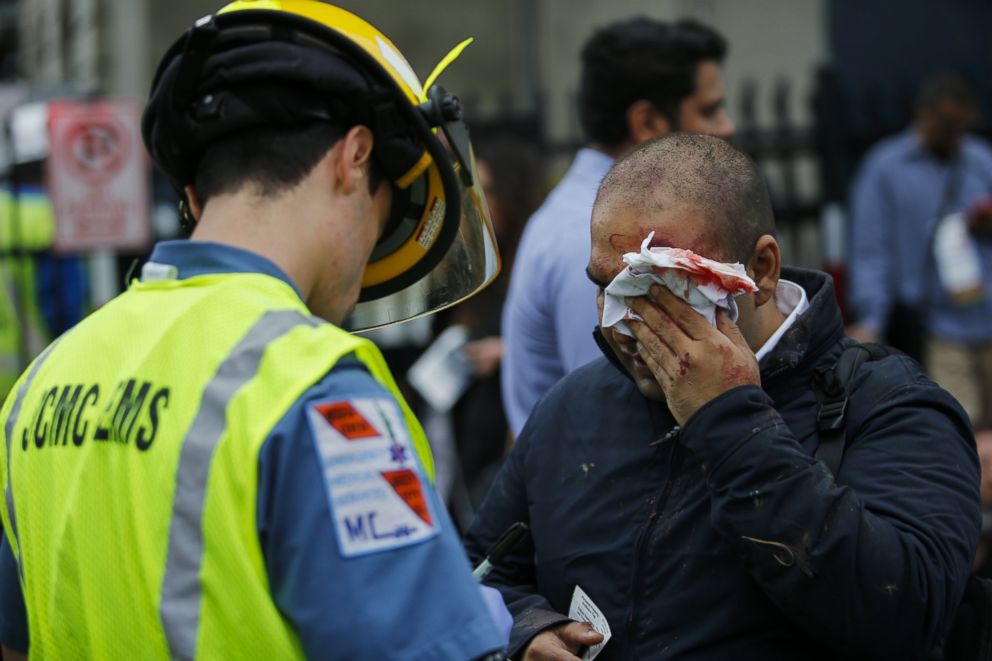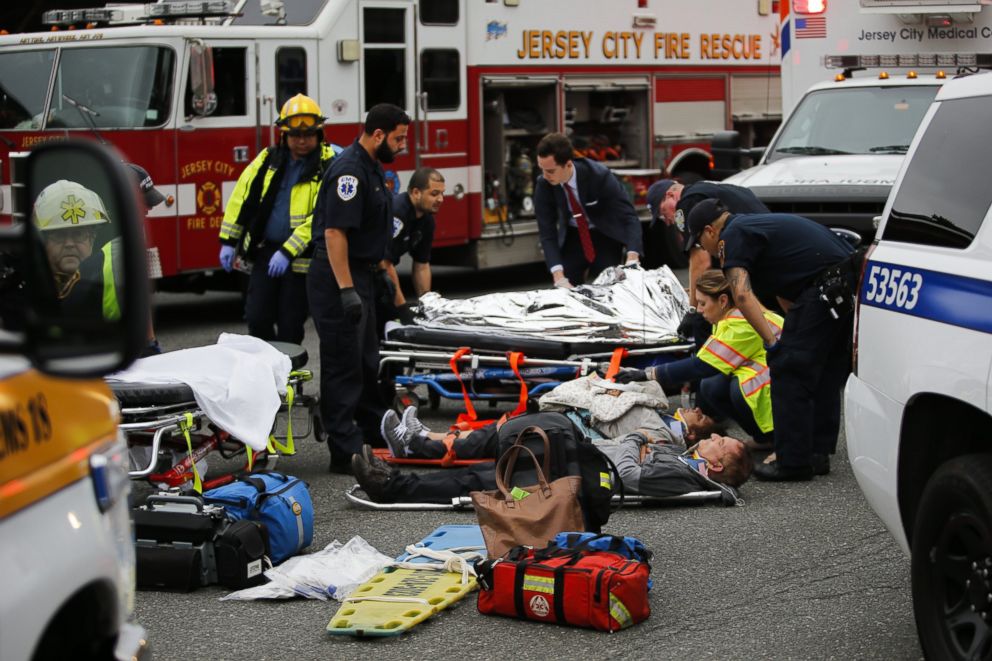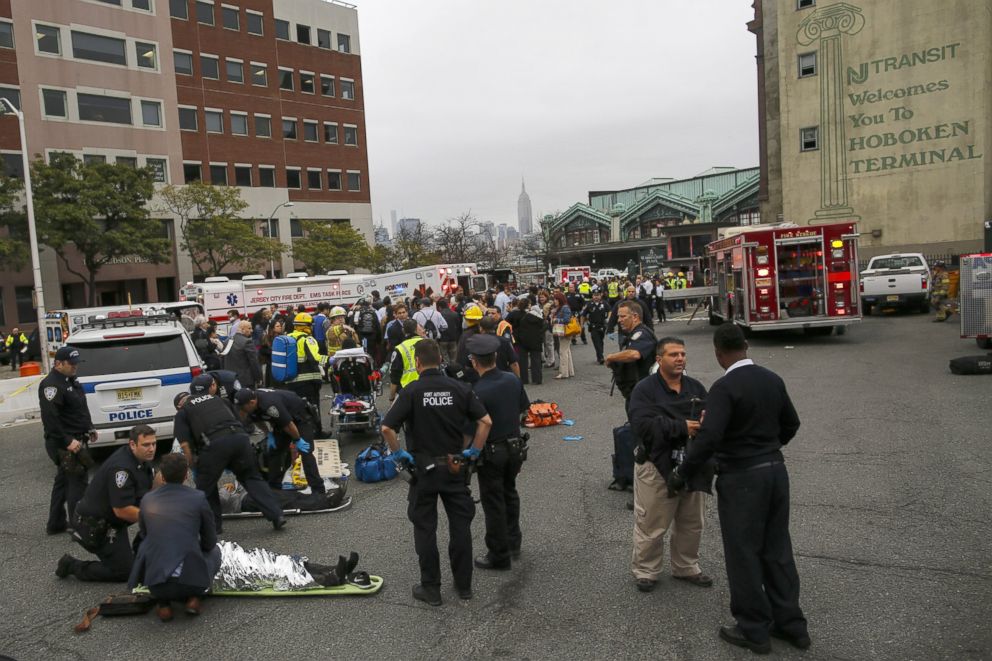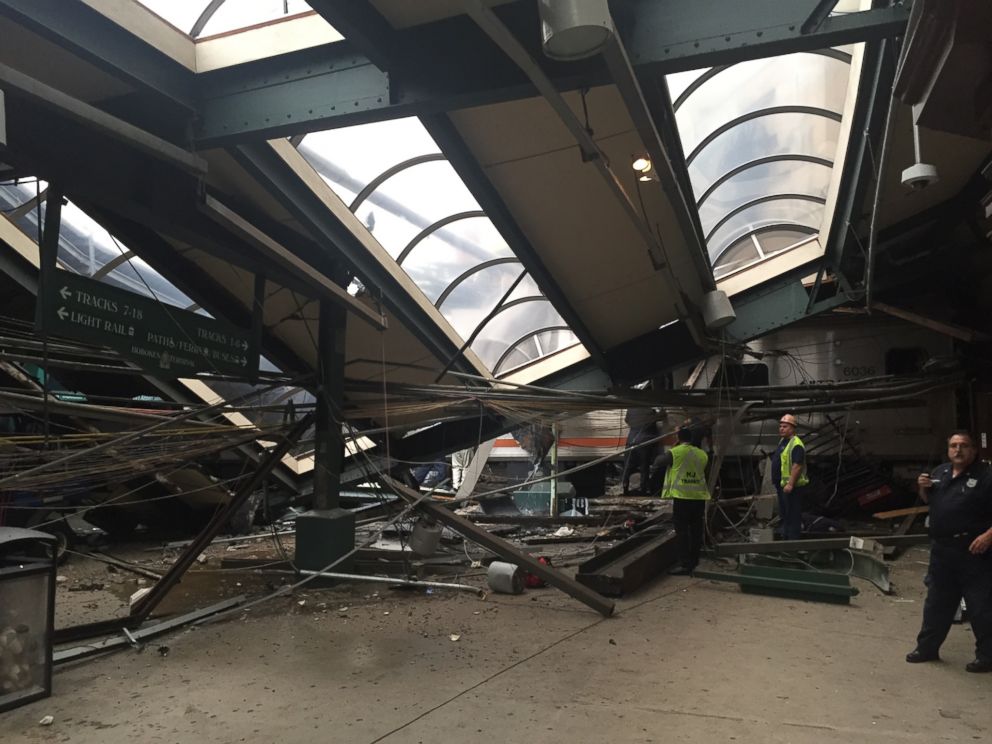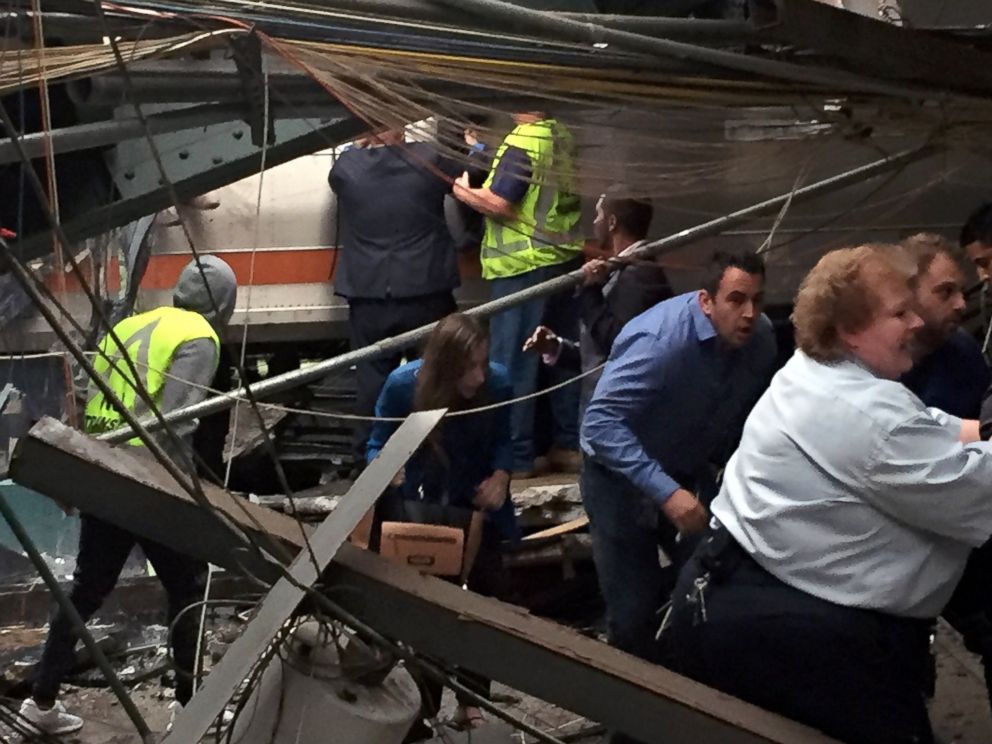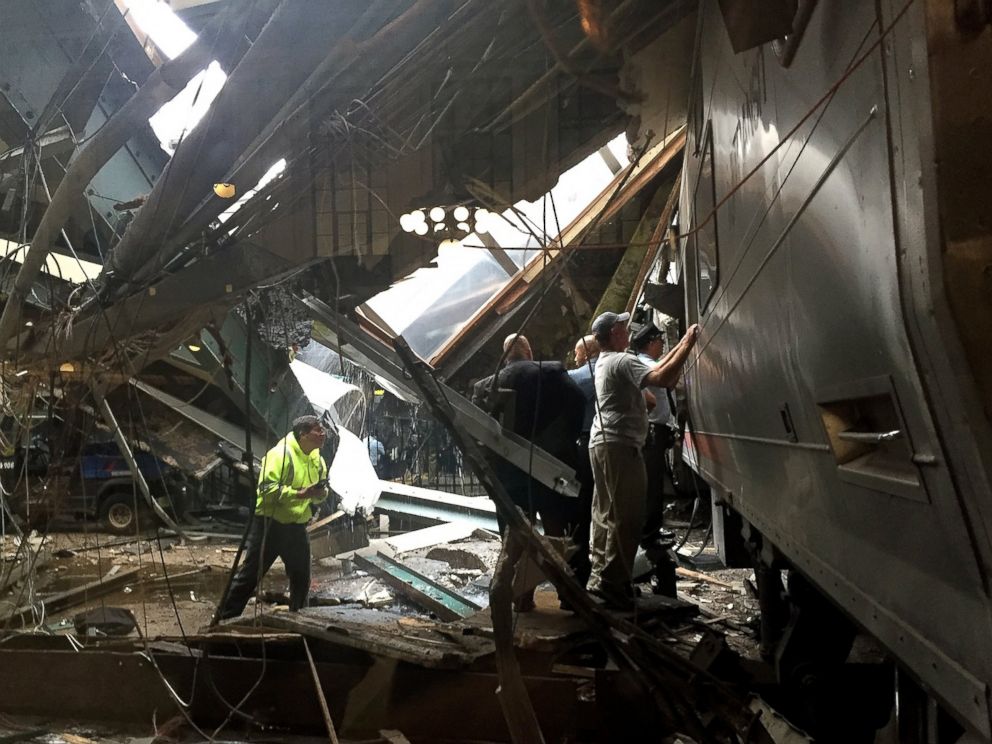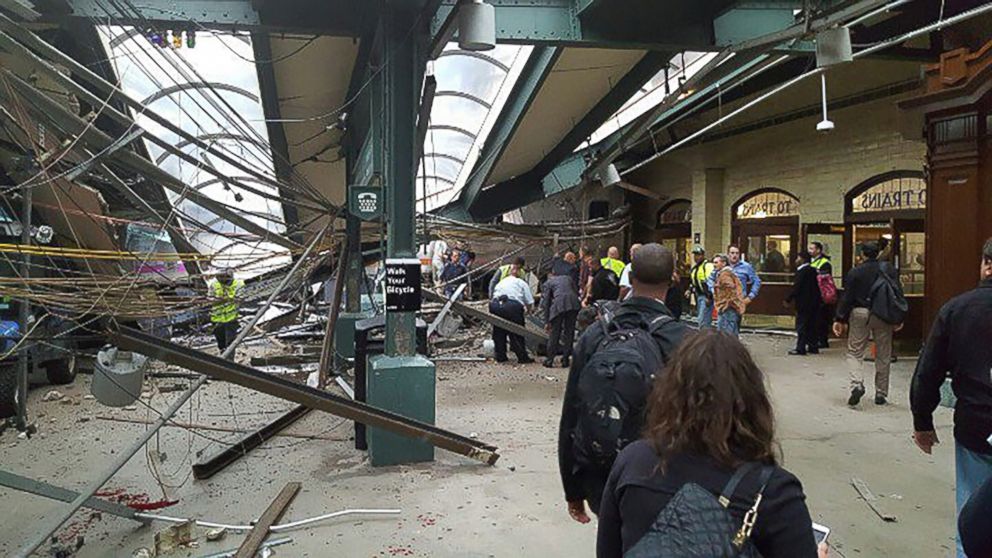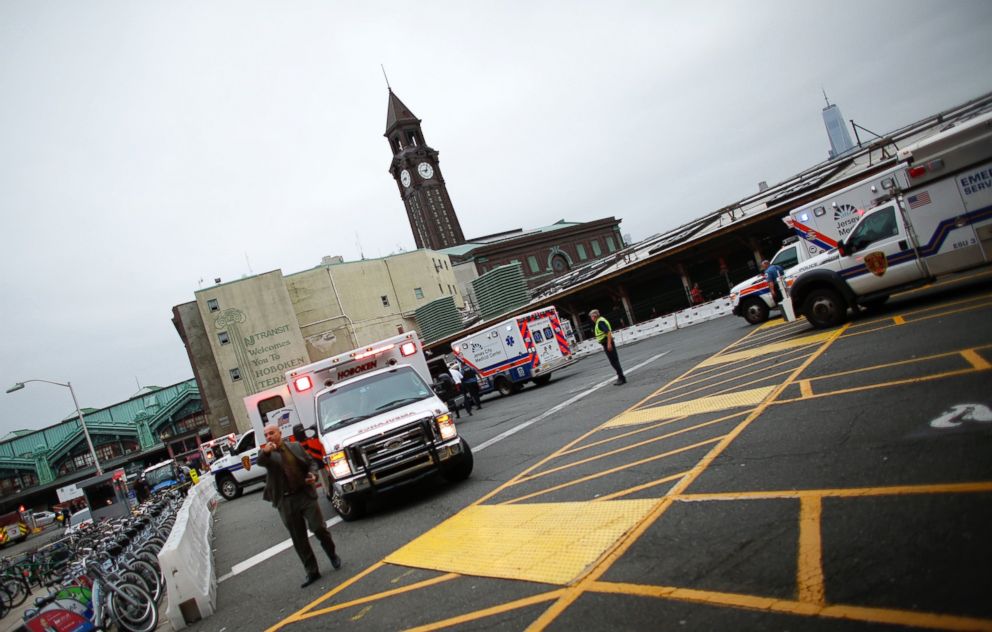NJ Transit Crash: What We Know
Investigators will compare the crash to an incident that occurred in 2011.
— -- The morning commute has been disrupted for thousands of customers on Friday, as investigators worked to determine the cause of a train crash yesterday that killed one woman and injured more than 100 others in Hoboken, New Jersey.
The incident took place around 8:45 a.m. Thursday, during the middle of the morning rush hour, after a New Jersey Transit commuter train crashed into a historic station in Hoboken, New Jersey with such force that it was propelled into the air and sent wreckage flying, causing the station's roof to partially collapse.
Transit officials said the Hoboken station will remain closed on Friday, creating headaches for the more than 100,000 people who use New Jersey Transit to commute from New Jersey to New York City each day.
What we know: Transit officials tell ABC News that Train 1614, which originated in Rockland County, New York, crashed through a barrier at the end of the track, plowing into a platform and causing a partial collapse of the terminal's roof.
According to federal officials, the sole fatality was a woman standing on the train platform who was hit by debris from the crash. Two other people suffered life-threatening injuries, and dozens of others are being treated for minor injuries at area hospitals.
The woman who was killed was identified as 34-year-old Hoboken resident Fabiola Bittar de Kroon, a mother with a vibrant career who moved to the United States from Brazil with her family.
De Kroon was not a passenger on the train that crashed into the station but was killed by debris that fell onto the platform. Her identity was released by the State Medical Examiner's Office.
Her mother, Sueli Bittar, told ABC News that her daughter was a "beautiful girl inside and out." She also said De Kroon was "intelligent" and had a vibrant career in Brazil before moving to the United States within the last year.
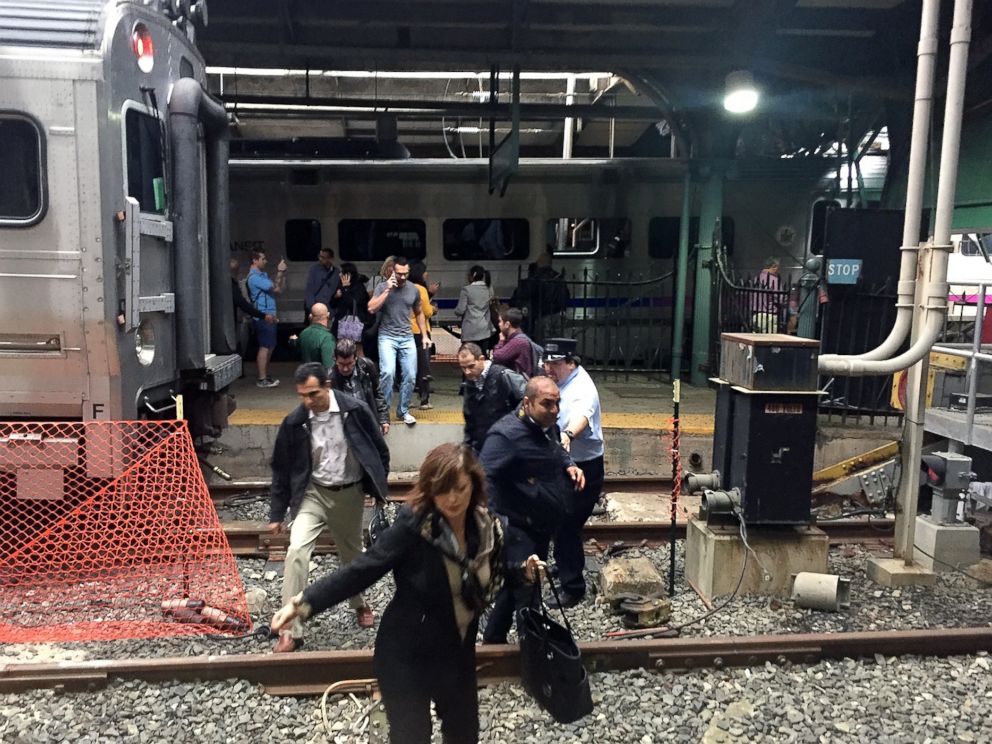
The train was traveling at a "high rate of speed" when it crashed, according to New Jersey Gov. Chris Christie.
The train's engineer has been hospitalized and is in stable condition, according to the Brotherhood of Locomotive Engineers, a union that represents train engineers. He is cooperating with investigators, Christie said.
According to the Federal Railroad Administration, the track lacked positive train control technology, which can automatically stop speeding trains when the engineer fails to pull the brake.
The National Transportation Safety Board and New Jersey authorities are investigating the incident.
NJ Transit Train Crashes Into Hoboken Terminal
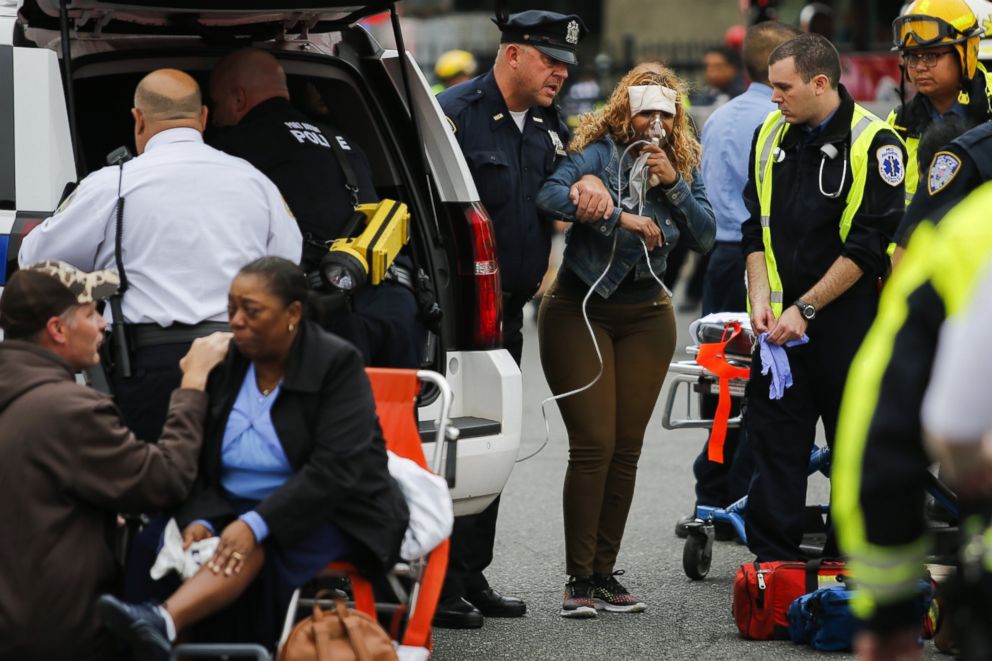
What investigators want to know: Investigators will likely examine a number of factors, such as whether the engineer was fatigued or recently ingested drugs or alcohol.
Blood that was taken from the engineer of the train at the hospital was negative for alcohol and drugs, a law enforcement official told ABC News. The testing was done as a routine part of the investigation.
They will also look for signs of a mechanical failure and investigate the condition of the tracks and the signage leading to the station.
Authorities tell ABC News they have no reason to believe the crash was the result of foul play.
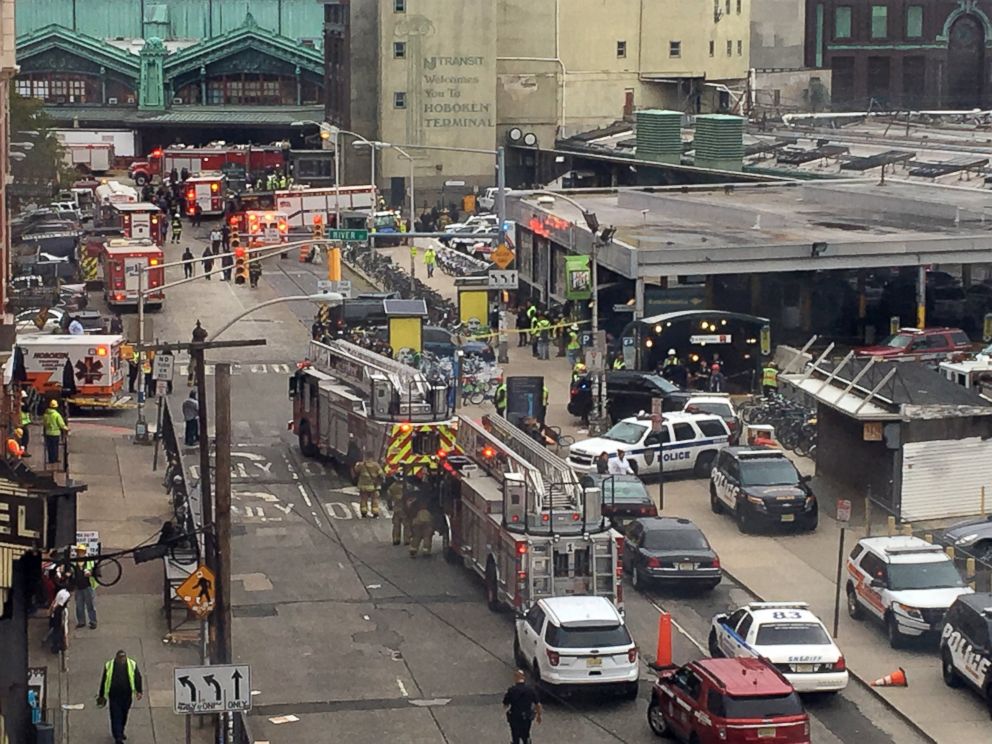
Station history: Thursday's crash wasn’t the first significant incident to occur at Hoboken Terminal.
In May 2011 a PATH commuter train crashed into the bumpers at the end of a different set of tracks, injuring more than 30 people.
The NTSB later blamed the engineer’s failure to control the train’s speed as it entered the station. The locomotive was traveling at an estimated 13 mph when it crashed, according to the NTSB report.
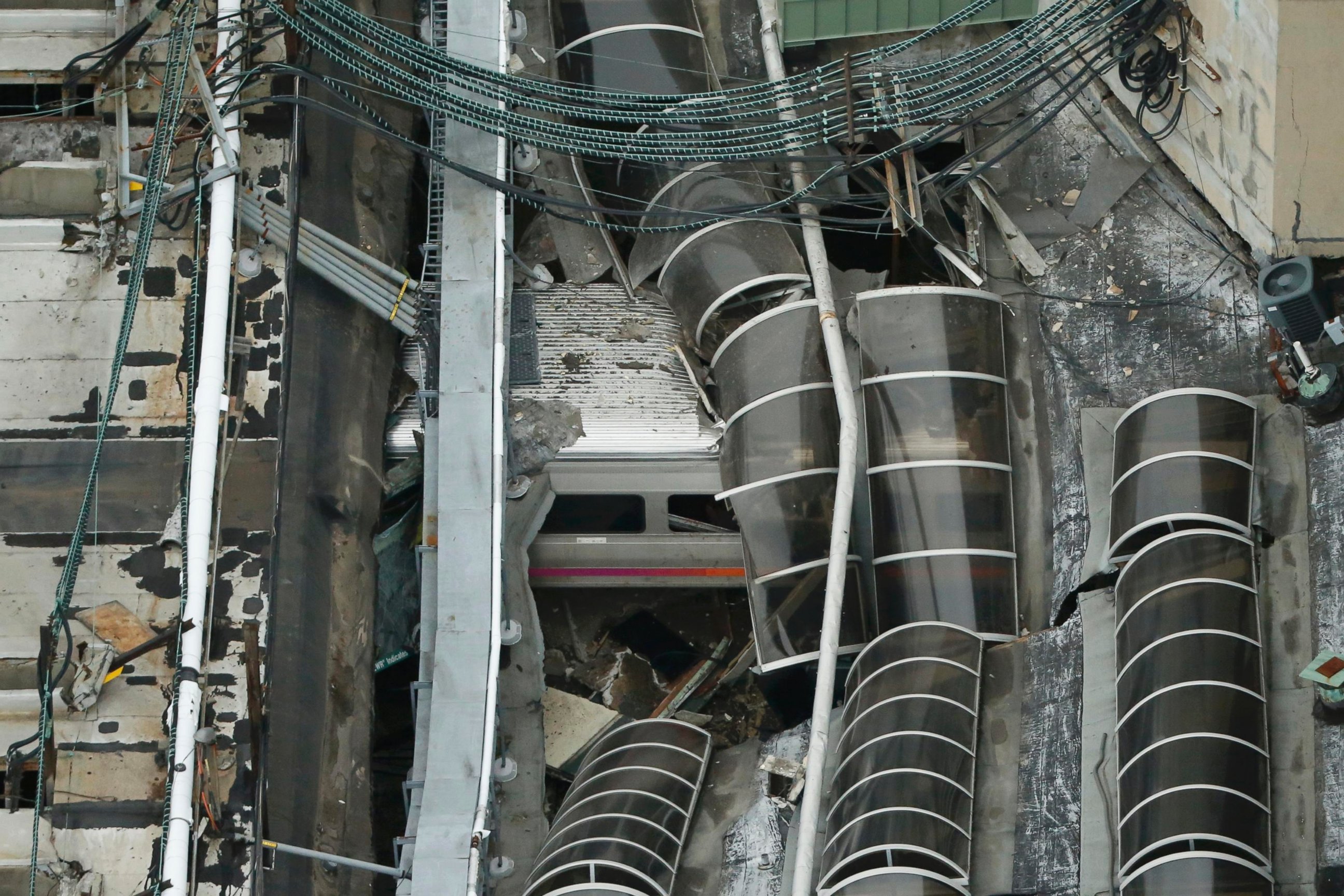
The agency has confirmed that it will investigate similarities between today’s crash and the incident in 2011.
ABC News' Josh Margolin, Troy McMullen, Aaron Katersky, Jeffrey Cook, Julia Jacobo and Mark Crudele contributed to this report.
